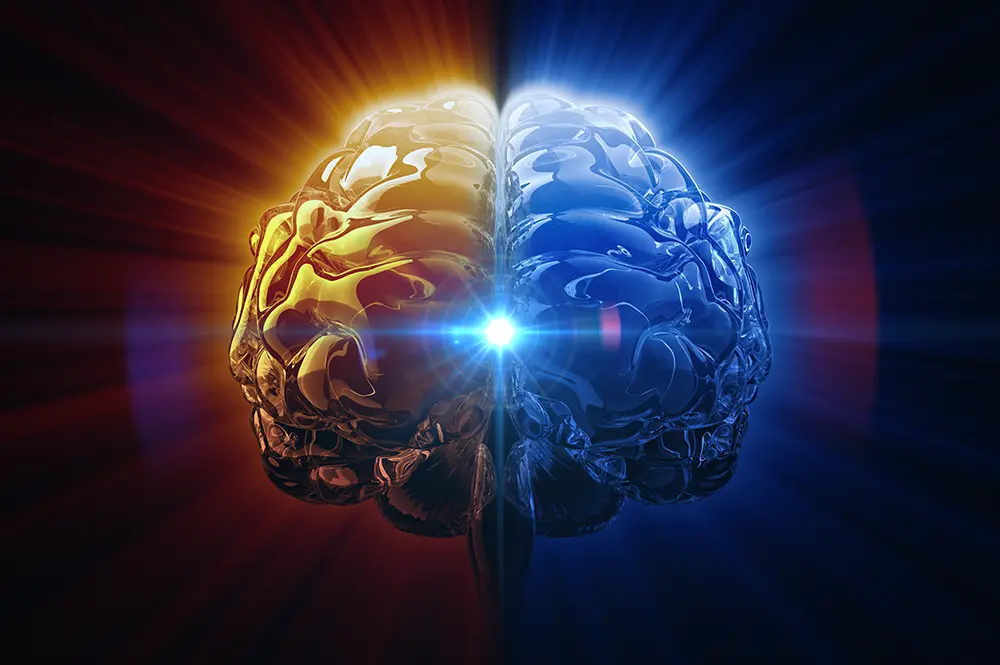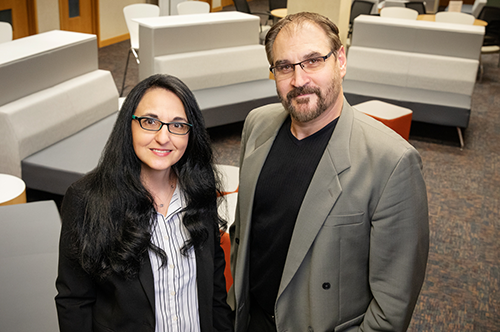

In a new study, researchers report they can manipulate how the brain encodes and retains emotional memories. The scientists found that focusing on the neutral details of a disturbing scene can weaken a person’s later memories—and negative impressions—of that scene.
The findings, reported in the journal Neuropsychologia, could lead to the development of methods to increase psychological resilience in people who are likely to experience traumatic events—such as soldiers, police officers or firefighters. Those plagued by depression or anxiety might also benefit from this kind of strategy, the researchers said.
“We were interested in different properties of memories that are typically enhanced by emotion,” said Florin Dolcos, a professor of psychology at the University of Illinois at Urbana-Champaign who led the study with psychology professor Sanda Dolcos. “The idea was to see whether by engaging in an emotional-regulation strategy we can influence those types of memory properties.”
There are two categories of memory retrieval. A person may recall a lot of details about an event or experience, a process the researchers call “recollection.” Or an individual may have a sense of familiarity with the subject matter but retain no specifics.
“We and others showed a while ago that emotion tends to boost our memories,” Florin Dolcos said. “We have also known that emotion specifically boosts recollected memories.”
This memory-enhancing quality of emotion is useful, but it can be problematic for those who recall—again and again—the details of a disturbing or traumatic event, he said.
“Negative memories could lead to clinical conditions such as post-traumatic stress disorder, where something that is really traumatic stays with specific details in people’s minds,” he said.
In the study, 19 participants had their brains scanned while they looked at photos with negative or neutral content—a bloody face or a tree, for example—superimposed on a neutral background. Functional MRI signaled which brain areas were activated during the task. An eye-tracker recorded where participants looked.
Before each photo, participants were asked to focus their attention either on the foreground or on the background of the image. After viewing it for four seconds, they rated how negatively the photo made them feel (not at all, very, or somewhere in between).
Participants returned to lab three to five days later to view the same photos—and a few new ones. They were asked to indicate whether the images were entirely new; familiar, but with no remembered specifics; or recollected in more detail.
Not surprisingly, when they focused on the foreground of photos with negative content, participants rated the photos as more negative. When they focused instead on the neutral backgrounds of photos with negative content, they still evaluated the photos as negative, but rated them less negatively. They also retained fewer detailed memories of the negative photos a few days later, the team found.
“This is the first example that we know of that focusing on the context of an emotional event while it is occurring can directly influence memory formation in the moment—and one’s recall of the event a few days later,” Sanda Dolcos said.
The fMRI scans revealed that brain regions known to be associated with emotional memory formation were most active when participants focused on the foregrounds of negative photos. Brain activity differed, however, when participants focused on the backgrounds of negative images.
“The background-focus condition was associated with decreased activity in the amygdala, hippocampus, and anterior parahippocampal gyrus,” the researchers wrote. These brain regions play a role in encoding memory and processing emotional information. A statistical analysis “also showed that reduced activity in these regions predicted greater reduction in emotional recollection.”
“It might seem counterintuitive that we are looking for ways to reduce people’s memories,” Sanda Dolcos said. “Usually, people are interested in improving their memories. But we are finding that strategies like this, that can be employed when we are exposed to certain distressing situations, can help a lot.”
Florin and Sanda Dolcos are affiliates of the Beckman Institute for Advanced Science and Technology at the U of I.


